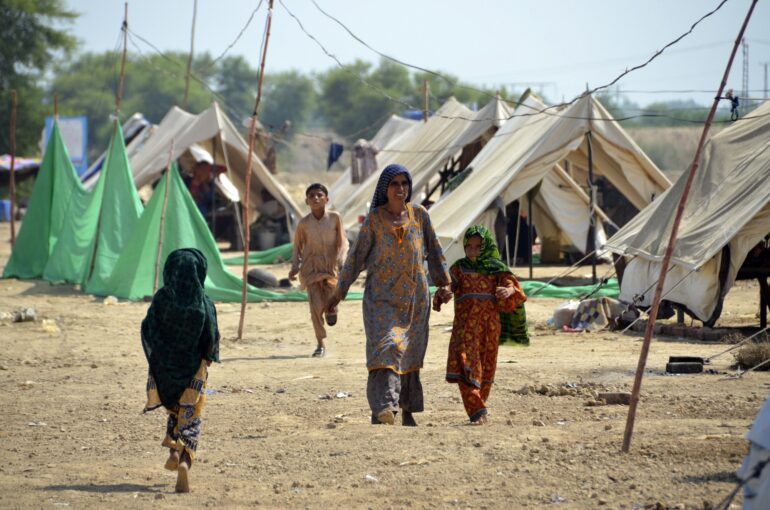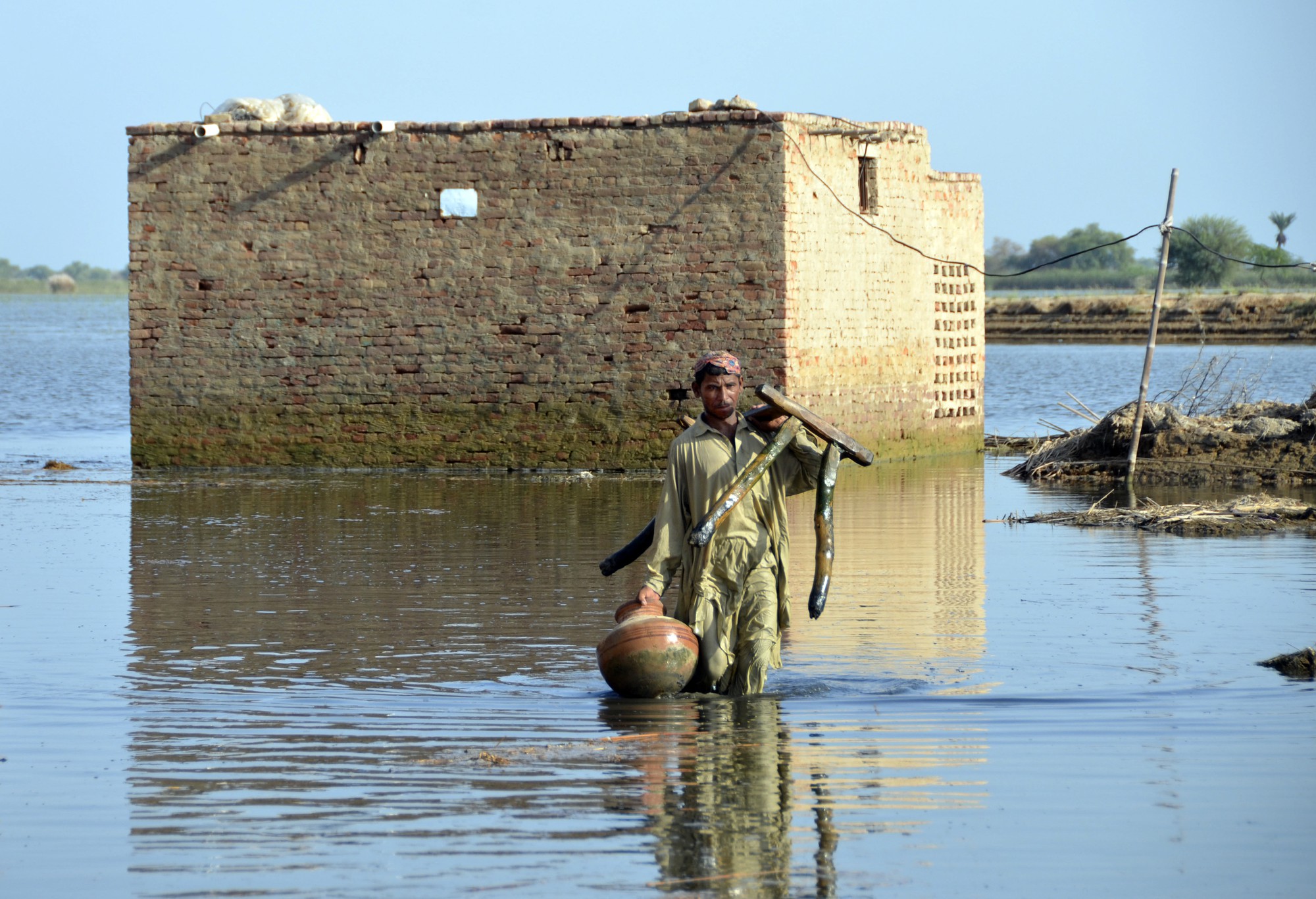Arslan Barjio, who lives in the southeastern Pakistan province of Sindh, said the death toll caused by torrential monsoons washed away villages and people’s lives are threatened by high waters, waterborne diseases and malnutrition.
“Five to six people are dying daily in my district, especially the children and females,” Barjio said.
United Nations (UN) officials say it could take six months for floodwaters to recede in the hardest-hit areas.
The worst flooding in the country’s history affected all four of the country’s provinces and approximately 15 per cent of its population. The disaster has caused damage to hundreds of thousands of homes, as well as public water systems, schools, and health facilities.
A study by a group of international climate scientists found that climate change was the cause for such heavy rainfall. Human Rights Watch has said the floods show the need for climate action.
“Everyone must do their part in climate change. It is time for international communities to come and do something,” Barjio said.

Families take refuge at a camp after leaving their flood-hit homes in Jaffarabad, a district of Baluchistan province, Pakistan, on Sept. 21, 2022. Photo credit: AP Photo/Zahid Hussain
With the support of the government and partners, UNICEF is delivering safe drinking water, medical supplies, food supplies, and hygiene kits to children and families in need.
The Pakistani Red Crescent is also providing assistance and was one of the first organizations to provide families affected by floods with humanitarian assistance.
“Pakistan’s Red Crescent has mobilized its mobile medical health teams and is providing free health services and serving more than 20,000 people,” Jamie Hofing, manager and media relations for the Canadian Red Cross.
Non-profits such as the Alkhidmat Foundation have opened an appeal for food relief funds, including tents, tarpaulins, flood and medical camps.
The floods in Pakistan have caused immigrants living in Canada anxiety and anguish about the effects of climate change while living a half world away from their homeland and families.
“If climate change was under control, this wouldn’t have happened and people wouldn’t have died,” said Hania Mahmood, an international computer science student at Algoma University.
Zainab Zahid, a Pakistani environmental activist, said that the majority of the population’s economy depends upon agriculture and the flood had a major impact on it.
“It’s definitely gonna impact the rehabilitation process of these people because as of now, they don’t even have their homes”, said Zahid.
Pakistan is paying the price for climate change despite accounting for a small amount of emissions. According to Our World in Data, Pakistan contributed 0.67 per cent of global emissions in 2020 while the U.S. and China amounted to 13.54 per cent and 30.65 per cent respectively.
“These people didn’t contribute to climate change, these people were innocent,” Mahmood said.

